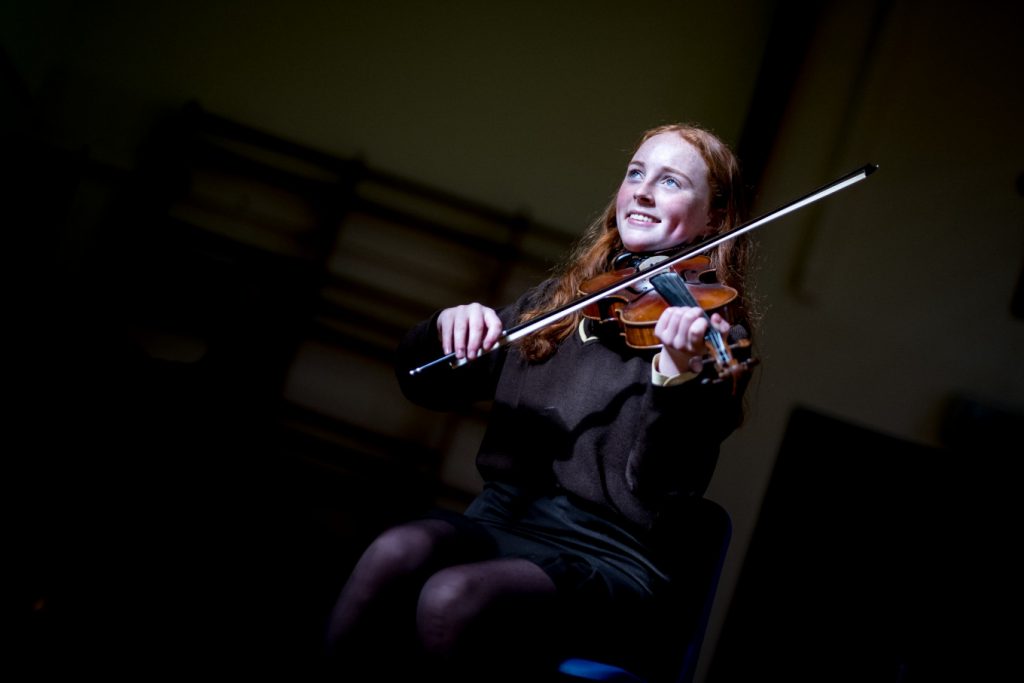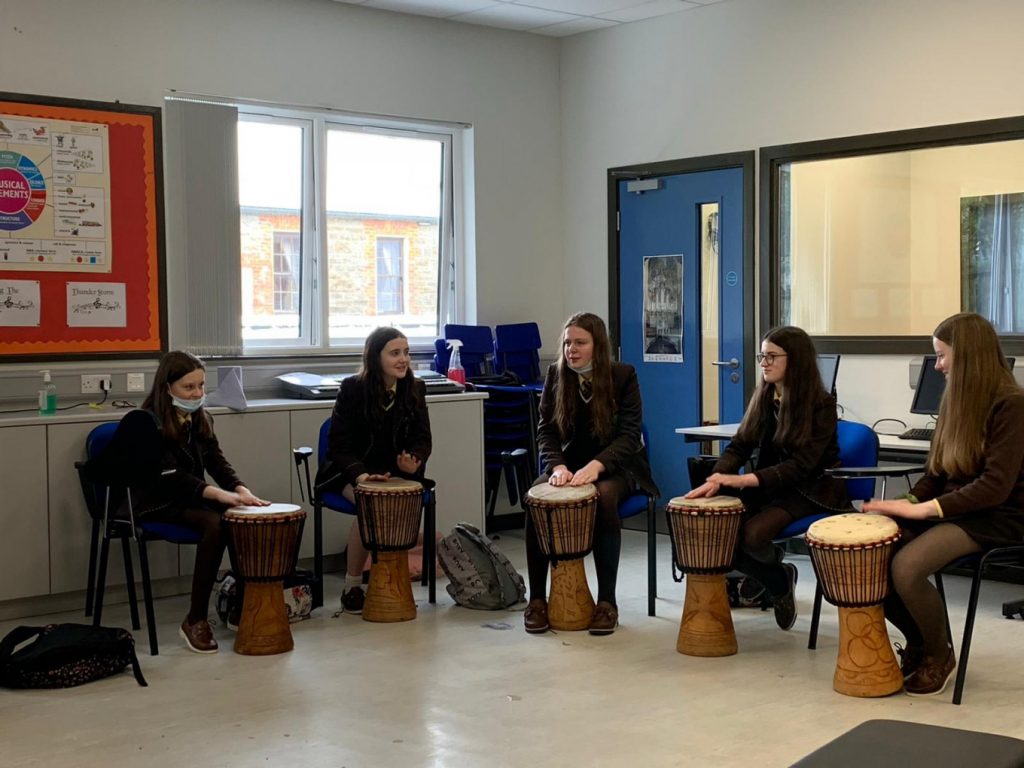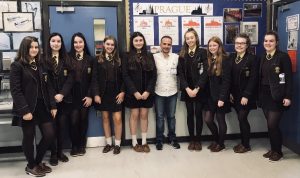GCSE – MUSIC
GCSE – Music

GCSE Music will provide you with the opportunity to develop your skills in performance, composition (creating music) and listening/musical appreciation, taking your place as musical leaders within our Music Department.
Here is some information on the topics covered within the CCEA specification so that you know what you will get to enjoy if you choose GCSE Music at Loreto.
Performance
This part of the GCSE Music course is the one that most of our students feel most confident about and it is always a pleasure for us as teachers to see the standards of performance that are reached in the GCSE practicals, which take place in April/May of Year 12. You will be required to perform two pieces for this part of the assessment, showing how well you can communicate the music to the listener, and this accounts for 35% of the overall GCSE Music mark.
- Solo/individual piece
- Group/ensemble performance
Your teacher will guide you on your choice of music but you can perform songs from musical theatre, a graded examination piece, a traditional music set, an arrangement of a piece of film music that you love etc – we would advise you to choose a genre that you love and this will make practising for this part of the assessment fun! This part of the course gives our most talented performers their chance to shine but also, additionally, gives you the opportunity to consider other important aspects of what makes a good musical performance, which you will also be assessed on in a short discussion with the examiner.
Our GCSE Music students will get many opportunities to practice their performance skills and are often called up on to represent the school as performers in the Station Centre, in the town at Christmas time, at school liturgies and Open and Prize Nights, for example.
Composing
This is the most creative part of the Music GCSE course where you will learn to find your voice in your own musical creations – perhaps you are a budding composer but haven’t realised yet! In this section of the course you will compose pop music, a traditional music jig, a piece of film music and a piece based around a classical structure.
We will give you all the support you need to develop your skills in this area, which will include a composition skills workshop on Film Music by an internationally renowned film composer, who will help you to really think about the ways in which you can develop your musical ideas.
You will also learn how to use new music composition software (Sibelius) which allows you to play your musical ideas into a MIDI keyboard, which will then be notated for you, thus developing your creative and ICT skills at the same time! 2 compositions will be assessed for this part of the course, and account for 30% of the overall GCSE Music mark.
Listening/Appraising
This part of the course will enable you to develop your ability to think critically about the music you hear every day – how pieces of music are structured, the effect of the instruments you choose has on music, the effect of harmony on the listener and many more things besides! It will also add to your understanding and appreciation of the music you listen to and love.
The listening/appraising part of the GCSE Music course is centred around four attractive topic areas:
- Pop Music
- Musical Traditions of Ireland
- Western Classical Tradition
- Film Music
In a similar way to English Literature, you will study a number of set works/pieces within each topic area, giving you the chance to look in more depth at how a film composer produces a sense of tension or heroism in music, for example, or why a jig makes you want to dance. This component of the course in assessed by way of a written listening paper and accounts for 35% of the overall GCSE Music mark.
If you would like any further information or you have specific questions you would like answered, you can contact Mrs McGirr a
Curriculum Enrichment
GCSE pupils will also be provided with opportunities to participate in workshops with musicians outside the school. Recent examples include:- internationally renowned film composer Michele Josia (www.michelejosia.com), who has worked with Ennio Morricone and his music has featured recently on Netflix; and Dr Ryan Molloy (www.ryanmolloy.ie) Associate Professor of Composition at Maynooth University and noted performer and composer of Traditional Music.
Pupils will also be provided with opportunities to attend concerts which may be related to the listening areas of study in the GCSE course – such as trips to Ulster Hall to hear the Mozart set work being performed by the Ulster Orchestra.
Who is suitable for this course?
Any singer or instrumentalist of a basic standard upwards should consider themselves eligible as long, as they are prepared to continue working on their chosen medium for the next two years. All styles of musical performance including Pop, Irish Traditional and Classical are acceptable.
Career Opportunities
GCSE Music provides pupils with opportunities to develop skills that are essential in the modern workplace – communication, creativity, collaboration, critical thinking. Music GCSE is very useful for a career in broadcasting and television, copyright law, music journalism, music publishing, acting, music and instrument retailing, music libraries, music therapy, music administration, dancing, making and tuning musical instruments, sound recording and musical technology. Music as a subject is also highly endorsed by the medical profession because of its required dexterity and high levels of creativity.


Who is suitable for this course?
Any singer or instrumentalist of a basic standard upwards should consider themselves eligible as long as they are prepared to continue working on their chosen medium for the next two years. All styles of Musical Performance including Pop, Irish Traditional and Classical are acceptable.
Career Opportunities
Essential for a career in broadcasting and television, music journalism, music publishing, acting, music and instrument retailing, music libraries, music therapy, music administration, dancing, making and tuning musical instruments, sound recording and musical technology. Music as a subject is also highly endorsed by the Medical Profession because of its required dexterity and high levels of creativity.